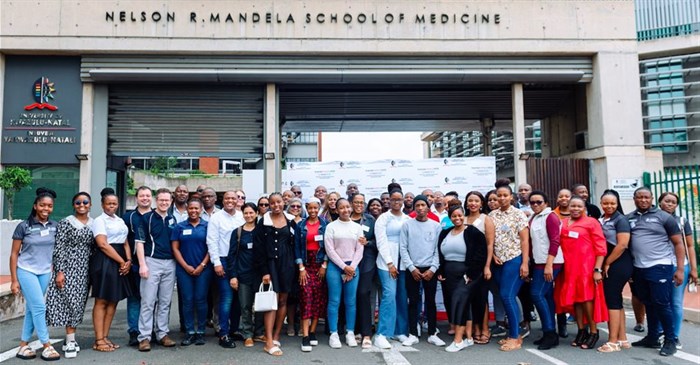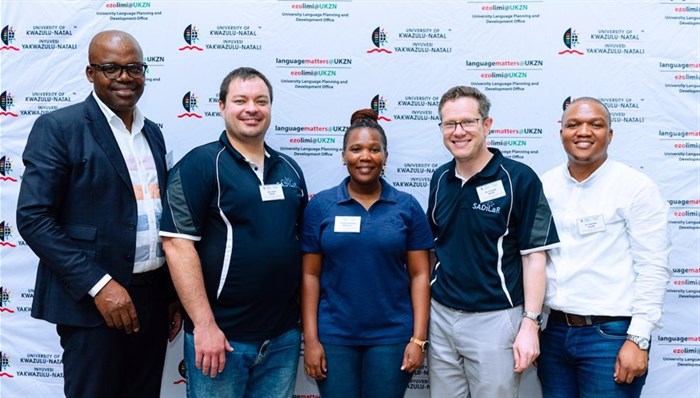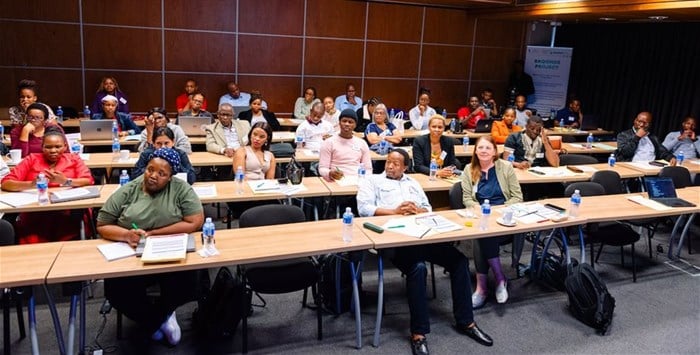The South African Centre for Digital Language Resources (SADiLaR) recently facilitated a successful online-dictionary training workshop at the University of KwaZulu-Natal (UKZN). Hosted by UKZN's University Language Planning and Development Office (ULPDO) on 7 December 2023, the one-day workshop invited staff, students, and language practitioners to delve into the world of online dictionaries and discover the numerous benefits they hold for research and learning.
Following introductions and a welcome address by Khumbulani Mngadi, acting director of ULPDO, the online-dictionary workshop was kicked off with a talk by SADiLaR's executive director, Prof Langa Khumalo, about why you might want to have an online dictionary in the first place.
“Most publishers are moving away from paper dictionaries to online dictionaries,” Khumalo said. “The online dictionary platform provides sufficient space for a detailed treatment of lexicographic information. A headword or keyword will have more information that describes it, the context of its usage, and other multimodal information (such as pictures, audio, and video) to illustrate its typical usage. In this way, online dictionaries have the capacity to provide more informative and detailed information than cannot otherwise be found in a paper dictionary because the latter has space constraints. It would profit university students and researchers a lot to have key concepts defined and presented in an online environment.”
SADiLaR’s director of operations, Juan Steyn, and technical manager, Dr Friedel Wolff, led the teaching part of the workshop, while Rooweither Mabuya, SADiLaR’s digital humanities researcher in isiZulu, assisted during the session.
“Our workshop topics comprised giving a short review of existing online dictionaries (including our own dictionary portal), exploring the different information needs of users, highlighting the importance of the fair guiding principles for scientific data management and stewardship, and considering the differences between structured and unstructured data. All of this was done by providing examples throughout and exploring how these different aspects can assist students and language practitioners,” Dr Wolff commented.
Multifunctionality of online dictionaries
According to Wolff, a key advantage of online dictionaries is that they are multifunctional. “When planning a project to build an online dictionary, or when evaluating one, it is useful to consider it as more than just a dictionary. It could also function as software, a website, or a search engine, which might lead to many considerations outside of traditional lexicography, such as search engine optimisation (SEO) and software usability,” he said.
One of the workshop’s activities required the participants to compile a glossary and to consider the necessary steps to achieve that.
“A scenario was given to the participants to compile a glossary for mechanical engineering in isiZulu,” Mabuya explained. “The participants were divided into groups of three and they were tasked with identifying the processes. Some of the participants took us through the processes of terminology development, and we then used the opportunity to show them what can be done with their terminology datasets and the term bank they developed. It was a wonderfully engaging experience,” she said.
Collaboration opportunities
In a somewhat surprising turn, feedback from the facilitators pointed participants to collaboration opportunities that were not previously considered and could vastly reduce the cost of such a project.
“This highlights the work that has already been done in South Africa, and the significant benefit collaboration holds for institutions and related languages,” Wolff noted.
During the feedback session, a recurring theme was the need for more language specialists, identifying the user, and following through the steps of consultation, verification, and a standardisation phase where the Pan South African Language Board (PanSALB) is involved, Mabuya added.


































